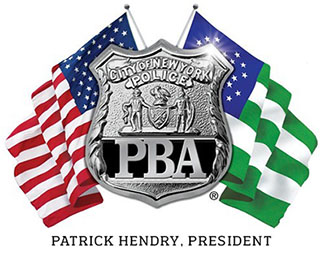





CONTACT:
John Nuthall
212-298-9187
Good Morning Mr. Chairman and distinguished members of the Committee.
It is with some irony that we address this Committee today, almost 40 years to the day that George W. Taylor and his committee submitted their famous report to Governor Rockefeller, which formed the basis for New York State’s Taylor Law. That report had its genesis in Governor Rockefeller’s request “to make legislative proposals for protecting the public against the disruption of vital public services…while at the same time protecting the rights of public employees.”
The Taylor Committee report recognized that the right to withhold one’s labor, or the right to strike, is recognized as an "essential democratic right of employees in the private sector.” For a variety of reasons, the Taylor Law Committee found it inappropriate to grant public sector employees the right to strike, but in exchange the Committee envisioned “a system of effective Collective Negotiation in the Public service.” We are here to tell you that the system of collective negotiation in this City is not presently effective and has not been effective for some time.
I am the President of a union, The New York City Patrolmen’s Benevolent Association, with perhaps as much experience as any union in the state with the Taylor Law’s Impasse Provisions. In the last five rounds of bargaining, the PBA has invoked the impasse procedures available to it under the Taylor Laws, four times. The first two arbitrations were held under the rules of the City’s office of Collective Bargaining, while our most recent two interest arbitrations were held pursuant to the rules of the New York State's Public Employment Relations Board. Yet, after almost two decades of being compensated at levels far below our police counterparts in other jurisdictions, we sit here in the year 2006 still between 20%-40% behind other police jurisdictions in pay benefits.
I would first like to address why it is we continue to invoke the state’s impasse procedures.
Collective bargaining is non-existent in the City of New York.
The negotiation process in the City of New York has been reduced to the following scenario in round after round of bargaining: The City will pick the union that will settle for the lowest amount and seek to apply that settlement with little or no deviation to every other union in the City without regard to the other unions—competitive standing in the area of compensation. I have never participated in a single negotiation with the City Labor officials where our compensation inadequacies are acknowledged by the City and a solution was even considered. In other words, the City has never once in the last 20 years, but certainly during my tenure of seven years, negotiated in good faith with the union. Why? The answer is very simple: it does not have to and, given the current state of the Taylor Law, there is no risk to the City for not negotiating in good faith.
Four arbitration panels that have considered the question have done little to correct our compensation inequities. The first two arbitrations under OCB were little more than show proceedings. The OCB panels awarded the PBA exactly what the city offered every other union, even if it was no raise at all, notwithstanding the wide gap in salaries between the NYPD and virtually every other police jurisdiction. The OCB system of resolving impasses between unions and management must take the blame for creating an environment where the City felt emboldened to offer City employees no raises at all for 3/½ years in the 1990s. That is why OCB has been rightly referred to as the “Lap Dog” of the City. Surely George Taylor never contemplated an entity such as OCB administering impasse procedures for public employees or the type of outcome we saw at OCB.